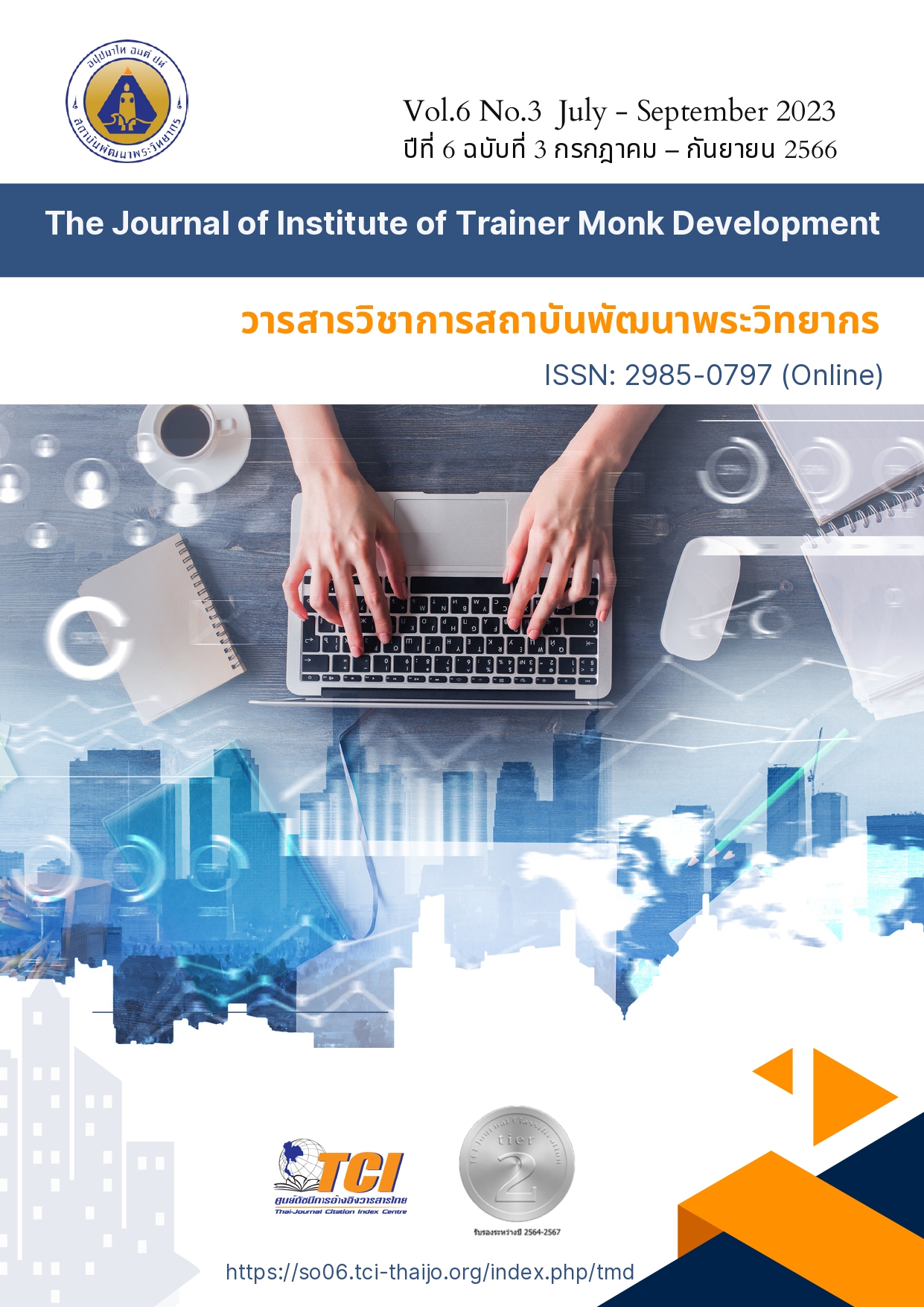Ideas on Buddhism and Public Interest Principle in the Thai Public Law
Main Article Content
Abstract
The objectives of this article are 1) to study ideas regarding the relations between Buddhism and basic principles of the public law, 2) to study ideas regarding the public interest principle in the Thai public law, and 3) to study Buddhism concepts relating to the public interest principle in the Thai public law. This qualitative research was carried out by mean of documentary research methodology. The data was collected, arranged, and analyzed in accordance with the points of the study. The findings are as follows. 1) Buddhism has relation and coherence with the public law in respect of ideals since the application of law must be essentially based on legitimacy and morality and aim to the objectives of the public law. Also, it has relation in respect of the provisions enacted as laws, such as those concerning Buddhism patronage and protection in the Constitution of the Kingdom of Thailand and other relevant laws. 2) Propagation of Buddhism doctrines or any Buddhism activity is performed for a purpose of public interest and is considered a form of the State’s public services. 3) Buddhism concepts that relate to the public interest principle in the Thai public law, which are moral principles representing good attributes of governors, are the sovereignty principle, the Sangaha Vatthu 4 principle or the 4 principles of service for rulers, and the virtues of the King (the tenfold royal virtues).
Article Details

This work is licensed under a Creative Commons Attribution-NonCommercial-NoDerivatives 4.0 International License.
บทความที่ได้รับการตีพิมพ์เป็นลิขสิทธิ์ของวารสารวิชาการสถาบันพัฒนาพระวิทยากร
ข้อความที่ปรากฎอยู่ในบทความที่ได้รับการตีพิมพ์ในวารสาร ถือเป็นความรับผิดชอบของผู้เขียนบทความ และข้อคิดเห็นนั้นไม่ถือว่าเป็นทัศนะและความรับผิดชอบของกองบรรณาธิการวารสารวิชาการสถาบันพัฒนาพระวิทยากร
References
เกรียงไกร เจริญธนาวัฒน์. (2565). หลักพื้นฐานกฎหมายมหาชน. (พิมพ์ครั้งที่ 8). กรุงเทพมหานคร: วิญญูชน.
เอกบุญ วงศ์สวัสดิ์สกุล. (2553). “ข้อความคิดว่าด้วยประโยชน์มหาชน ในระบบกฎหมายปกครอง” ใน ทุกก้าวย่างอย่างครูกฎหมาย: รวบบทความที่ระลึกในโอกาสอายุครบ 60 ปี รองศาสตราจารย์สมยศ เชื้อไทย. คณะนิติศาสตร์ มหาวิทยาลัยธรรมศาสตร์. กรุงเทพมหานคร: มหาวิทยาลัยธรรมศาสตร์.
คณาจารย์ มหาวิทยาลัยมหาจุฬาลงกรณราชวิทยาลัย. (2559). พระพุทธศาสนากับการเมืองการปกครอง. พระนครศรีอยุธยา: มหาวิทยาลัยมหาจุฬาลงกรณราชวิทยาลัย.
บรรเจิด สิงคะเนติ. (2564). หลักพื้นฐานสิทธิเสรีภาพและศักดิ์ศรีความเป็นมนุษย์. (พิมพ์ครั้งที่ 6).กรุงเทพมหานคร: วิญญูชน.
บวรศักดิ์ อุวรรณโณ. (2538). คำอธิบายกฎหมายมหาชน เล่ม 3. กรุงเทพมหานคร: นิติธรรม.
บุญชณัฎฐา กรัชกายพันธ์. (2559). การใช้หลักธรรมทางพระพุทธศาสนาสนับสนุนหลักการประโยชน์สาธารณะในกฎหมายมหาชนของไทย. วิทยานิพนธ์นิติศาสตรมหาบัณฑิต. สถาบันบัณฑิตพัฒนบริหารศาสตร์.
ประยงค์ แสนบุราณ. (2557). หลักธรรมในการปกครองของพระพุทธศาสนา. วารสารมนุษยศาสตร์สังคมศาสตร์, 31(3): 139-158.
พระครูอุดมจารุวรรณ จารุวํโส (คําไล). (2558). การบริการสาธารณะตามแนวทางพระพุทธศาสนา. วารสารวารสารบัณฑิตศาสน มมร, 13(1): 56-64.
พระพรหมคุณาภรณ์. (2559). พจนานุกรมพุทธศาสตร์ ฉบับประมวลธรรม. (พิมพ์ครั้งที่ 34). กรุงเทพมหานคร: มูลนิธิการศึกษาเพื่อสันติภาพ พระธรรมปฎก (ป.อ.ปยุตโต).
วรเจตน์ ภาคีรัตน์. (2564). คำสอนว่าด้วยรัฐและหลักกฎหมายมหาชน. (พิมพ์ครั้งที่ 3). กรุงเทพมหานคร: อ่านกฎหมาย.
วรพจน์ วิศรุตพิชญ์. (2562). ข้อความคิดและหลักการพื้นฐานบางประการของกฎหมายปกครอง. (พิมพ์ครั้งที่ 2). กรุงเทพมหานคร: วิญญูชน.
สมยศ เชื้อไทย. (2557). หลักกฎหมายมหาชนเบื้องต้น. (พิมพ์ครั้งที่ 10). กรุงเทพมหานคร: วิญญูชน.


